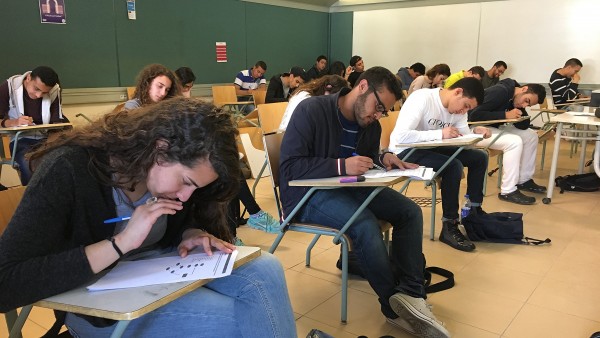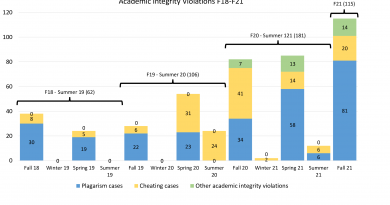Taking the Teaching out of the Assistant
![Under the new provisions, undergraduate assistants, formerly known as TAs, will no longer be allowed to proctor exams [Suhayla Al Sheikh]](http://www.auccaravan.com/wp-content/uploads/2016/03/IMG_1626-copy-1-e1479917602626.jpg)
@MaureenGuirguis
Teaching assistants (TAs) have traditionally been part of the work-study program since its inception, but the Office of the Provost is now instituting a new system aimed at formalizing their tasks and clarifying the demands of their role.
The Undergraduate Classroom Support Program (UCS) is expected to come into effect this semester and will outline how undergraduate student teaching assistants are to be selected, tasked, trained, and paid.
The Provost wants clearly distinguish between undergraduate and graduate TAs by setting specific guidelines to regulate undergraduates who intend to join the program.
“Graduate students who assist faculty are also referred to as TAs, so this would cause a lot of confusion…it was important to clarify the situation regarding undergraduate students who help faculty in their classes,” Dean of Undergraduate Students Robert Switzer said.
UCS applicants will be selected on the basis of their GPA, communication and presentation skills.
They will be called in for interviews and once accepted must attend an orientation session, which will be conducted by the department in question at the beginning of the semester.
“You go through the same process of screening and selection, interviewing and attending orientation sessions,” said Yasmine Galal, a current assistant in the economics department.
The program requires UCS students to attend and observe class meetings, lead group discussions, offer one-on-one support for computer software, mentor soft skills and assist in field trips.
However, UCS students will now be prohibited from proctoring midterms or final exams, grade any coursework, conduct any revision sessions during class hours or assist in preparing exams.
“It should have been obvious to everyone that undergraduates shouldn’t be playing that kind of role in our classes – but it is helpful for everyone to have this spelled out,” Switzer said.
Galal said that this change could perhaps undermine the credibility of their role and may not appear as impressive as it would on a CV if they were called TAs.
“[Sessions] are supposed to be the essence of an assistant. When I don’t hold them, I don’t learn.”
Esraa El-Morshedy, a former accounting undergraduate assistant, says that the new program undercuts her qualifications.
“If I don’t supervise exams and hold problem sessions, then what am I really doing? I’m not gaining any experience,” El-Morshedy told The Caravan.
But Switzer denies that this new system will downplay the contributions undergraduate students make in this role.
“Far from it,” Switzer stressed. The committee who drafted the guidelines of the program aims to give those students their own identifying title.
“We’re actually trying to make the part UCS students can and do play in the teaching and learning that goes on in our classes not only clearer, but more widely recognized and appreciated,” Switzer said.
The method of remuneration, however, has not changed.
“The amount of pay is determined first by the rate per hour set by the Work Study Program, […] This is the way the Work Study Program has always worked. In this regard, nothing is new here,” Switzer said.
Nevertheless, the Provost expects everyone to abide by the new guidelines.
“Like all such changes, the ones we’re introducing here may take a while to fully take effect. The hope is that they’ll be very helpful for faculty, for departments, and for the UCS students themselves,” Switzer told The Caravan.
When a professor now tells a student to refer to the TA, it will be clear that they are referring to the graduate assistant if available.




